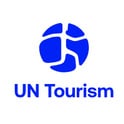UNWTO Returns To Geneva As World Begins To Open Up
The Secretary-General of the World Tourism Organization (UNWTO) will be in Geneva this week for high-level talks focused on the restart of tourism as restrictions on travel are eased in many parts of the world.
Strong Relationship with WHO
UNWTO last undertook an official visit to the home city of the World Health Organization (WHO) in 2019, just one day before COVID-19 was officially declared a pandemic. Now, as Switzerland joins growing numbers of countries in lifting or easing travel restrictions, UNWTO is back in Geneva for a week of meetings with key partners.
On Tuesday (22 February) Secretary-General Zurab Pololikashvili will meet with WHO Director-General Dr. Thedros Adhanom Ghebreyesus to discuss shared actions and priorities as the world begins opening up again. The two UN agencies will discuss the need for the continued easing of restrictions, having repeatedly warned against their ineffectiveness and the damage that blanket bans on mobility can have on economic and social wellbeing. Talks will also focus on UNWTO and WHO’s shared vision for clearer, more consistent rules and regulations concerning tourism and health, with the aim of restoring trust in international travel and kickstarting recovery.
Deepening ties with the private sector
Strengthening ties with key private sector and civil society partners is crucial in the current circumstances. Secretary-General Pololikashvili will meet with the Director-General of the International Air Transport Association (IATA), Willie Walsh, as well as with Pierfrancesco Vago, Chairman and CEO of the Cruise Lines International Association (CLIA). These meetings will be followed by an official visit to the headquarters of UEFA. Here, the sporting body’s President Aleksander Čeferin will sign a first-ever agreement with UNWTO aimed at promoting sports tourism as a driver of positive change and making the sector more inclusive and resilient.
Key partners in Switzerland
Against the backdrop of Switzerland announcing its plans to significantly ease restrictions on incoming travel, the UNWTO delegation will meet with Eric Jakob, Ambassador of the Swiss State Secretariat for Economic Affairs (SECO), whose brief includes tourism policy, as well as with Martin Nydegger, CEO of Switzerland Tourism.
In line with UNWTO’s focus on tourism jobs and education, the leadership will also tour the campus of the Gilon Institute of Higher Education and the Hotel Institute Montreux (HIM). Secretary-General Pololikashvili will meet with Benoit-Etienne Domenget, CEO of Sommet Education, UNWTO’s partner for online learning, and be welcomed to the new UNWTO International Centre Switzerland, located at the Bella Vista Higher Education Campus in Altdorf.
In another first, UNWTO will be addressing the UN Press Briefing at UN Geneva, providing an overview of the outcomes of the official visit and highlights on the tourism for development agenda for 2022, advanced by UNWTO.
RELATED LINKS
- “Blanket Travel Restrictions Don’t Work”: UNWTO Adds its Voice to WHO Statement
- UNWTO to Open International Tourism Education and Training Hub in Switzerland
About UN Tourism
The World Tourism Organization (UN Tourism) is the United Nations agency responsible for the promotion of responsible, sustainable and universally accessible tourism.
As the leading international organization in the field of tourism, UN Tourism promotes tourism as a driver of economic growth, inclusive development and environmental sustainability and offers leadership and support to the sector in advancing knowledge and tourism policies worldwide.
Our Priorities
Mainstreaming tourism in the global agenda: Advocating the value of tourism as a driver of socio-economic growth and development, its inclusion as a priority in national and international policies and the need to create a level playing field for the sector to develop and prosper.
Promoting sustainable tourism development: Supporting sustainable tourism policies and practices: policies which make optimal use of environmental resources, respect the socio-cultural authenticity of host communities and provide socio-economic benefits for all.
Fostering knowledge, education and capacity building: Supporting countries to assess and address their needs in education and training, as well as providing networks for knowledge creation and exchange.
Improving tourism competitiveness: Improving UN Tourism Members' competitiveness through knowledge creation and exchange, human resources development and the promotion of excellence in areas such as policy planning, statistics and market trends, sustainable tourism development, marketing and promotion, product development and risk and crisis management.
Advancing tourism's contribution to poverty reduction and development: Maximizing the contribution of tourism to poverty reduction and achieving the SDGs by making tourism work as a tool for development and promoting the inclusion of tourism in the development agenda.
Building partnerships: Engaging with the private sector, regional and local tourism organizations, academia and research institutions, civil society and the UN system to build a more sustainable, responsible and competitive tourism sector.
Our Structure
Members: An intergovernmental organization, UN Tourism has 160 Member States, 6 Associate Members, 2 Observers and over 500 Affiliate Members.
Organs: The General Assembly is the supreme organ of the Organization. The Executive Council take all measures, in consultation with the Secretary-General, for the implementation of the decisions and recommendations of the General Assembly and reports to the Assembly.
Secretariat: UN Tourism headquarters are based in Madrid, Spain. The Secretariat is led by the Secretary-General and organized into departments covering issues such as sustainability, education, tourism trends and marketing, sustainable development, statistics and the Tourism Satellite Account (TSA), destination management, ethics and risk and crisis management. The Technical Cooperation and Silk Road Department carries out development projects in over 100 countries worldwide, while the Regional Departments for Africa, the Americas, Asia and the Pacific, Europe and the Middle East serve as the link between UN Tourism and its 160 Member States. The Affiliate Members Department represents UN Tourism's 500 plus Affiliate members.
